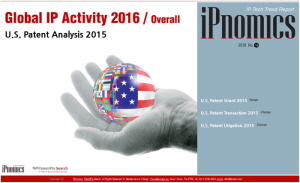Share the post "SKT Develops World’s First Ultra-Small Quantum Random Number Generator"
SK Telecom is planning to commercialize its quantum information communication technology and has decided to apply it to IoT fields.
SK Telecom made such public announcement at ‘9th Quantum Cyber Security Winter School’ that was held in Switzerland.
“We have implemented ‘QRNG (Quantum Random Number Generator’, which is one of major technologies of quantum information communication, and are planning to produce prototypes in March at the earliest.” said a representative for SK Telecom on the 22nd.
SK Telecom is going to release IoT product that is equipped with chips that optimize performance and stability within this year. It is difficult to mass-produce current QRNG due to its expensive price. Also it is not suitable for Smartphones and IoT products due to its size. SK Telecom succeeded in making QRNG as same side as a fingernail and also lowered QRNG’s price. If it succeeds in commercializing small chips that can be mass-produced, it will be recorded as the first ever QRNG that can be mass-produced. It will also be evaluated as a great victory in quantum information communication field where South Korean industries’ technologies fall behind by more than 10 years to advanced countries’ industries’ technologies.
“I am very surprised that SK Telecom is planning to commercialize QRNG as a small chip.” said Reuben at Quantum Winter School. “Even Germany does not have such technology yet.”
SK Telecom invested about $2.13 million (2.5 billion KRW) into IDQ (ID Quantique) that holds major patents for QRNG and has acquired rights to use IDQ’s patents exclusively. IDQ, which was established in 2001, was the first company to commercialize quantum information communication. IDQ and SK Telecom have agreed to co-develop ‘QKD (Quantum Key Distribution’ technology.
SK Telecom has developed world’s first ultra-small ‘QRNG’ that prevents any possibility of hacking from the beginning and greatly increases security. SK Telecom’s employee is introducing 5x5mm QRNG SoC chipset and USB modularized product.
QRNG is a technology that creates ‘random numbers’ so that pattern of codes cannot be analyzed. It is expected that QRNG will replace ‘false random numbers’ that are being used by cyber security systems.
Although false random numbers create unspecific numbers by using computer programs, they are not perfect for security since patterns can be exposed if numbers are repetitive. As performance of computers is improved, possibilities of hacking have also risen.
SK Telecom is planning to introduce IoT product that is applied with QRNG chip during second half of this year and is going to expand areas of application of QRNG towards entire IoT fields such as self-driving cars and Smart Meters. It seems it will be possible to differentiate QRNG products with unapplied products from security perspective. It is predicted that QRNG will have huge impact on entirety of ICT (Information Communication Technology) industries as it has better abilities to prevent possibilities of hacking than current coding systems.
It is heard that ‘decision’ made by Chairman Choi Tae-won had a huge impact on commercialization of SK Telecom’s quantum information communication. It is also heard that Chairman Choi has ordered investments into quantum information communication that can lead global industries even if it does not create profits immediately.
SK Telecom established Quantum Lab at its company building in Bundang at the end of 2011 and has been researching into quantum information communication technologies. It is finally seeing the fruits of its R&D after 6 years.
“It is still early to relax since many countries’ governments and companies are investing astronomical amount of funds into quantum information communication.” said a representative for SK Telecom. “We are going to do our best to establish a global brand image that has quantum information communication such as leader of quantum industries, acquisition of references, and accumulation of credibility equaling SK Telecom.”
Staff Reporter Kim, Yongju | [email protected]
Share the post "SKT Develops World’s First Ultra-Small Quantum Random Number Generator"




